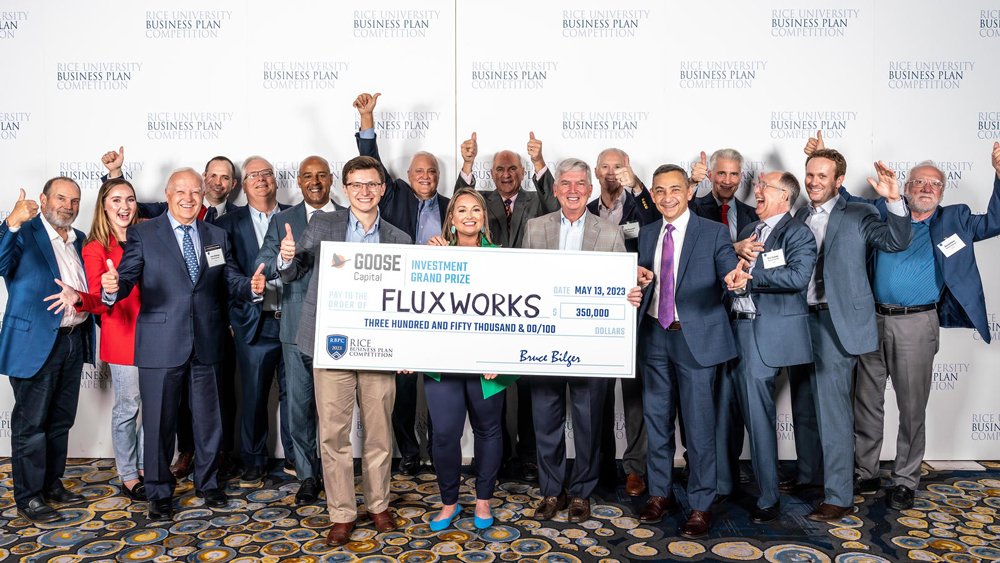Houston-Area Startup Evolving NASA’s Technology
Published Apr 15, 2024 by Lou Ann Duvall
Houston-area FluxWorks is evolving magnetic gear technology, promising efficiency and reliability across industries. Led by CEO Dr. Bryton Praslicka, FluxWorks leverages over a decade of research to revolutionize gear technology, with applications spanning from renewable energy to space exploration.
“NASA funded us to develop a gearbox for the next-generation Lunar Rover to go to the dark side of the moon,” said Dr. Bryton Praslicka, CEO of FluxWorks. “We needed to make a gearbox as lightweight and robust as possible while also withstanding extreme conditions—low temperatures, low atmosphere, and hard vacuum. That’s where my first patent came along.”
The company’s magnetic gear designs bring 99% efficiency and are four times quieter than their conventional counterparts. Instead of mechanical teeth, the gears rely on magnetic forces to transfer power—eliminating the need for lubrication, reducing maintenance requirements, and dramatically improving reliability. Beyond his patent-pending design innovations, Praslicka emphasized how FluxWorks builds on existing electric motor manufacturing techniques and supply chains to enable rapid scalability.
“Our unparalleled magnetic gear expertise means we can quickly get to market by retrofitting existing systems that already have electric motors, that already have gearboxes,” said Praslicka. “That’s one of the really exciting opportunities about our technology.”
With this innovative business model in place, the company placed second at the Houston Energy Transition Initiative Energy Ventures Pitch Competition at CERAWeek, the world’s premiere energy conference, and took home the grand prize at the 2023 Rice Business Plan Competition hosted by the Rice Alliance for Technology and Entrepreneurship and Jones Graduate School of Business. The FluxWorks team was also selected as the Water Power Technologies Office Bonus Prize Winner at the Department of Energy’s (DOE) EnergyTech UP competition.
"FluxWorks gearboxes deliver breakthrough performance with minimal maintenance, making them ideal for extreme applications and remote locations where uptime is critical,” said Praslicka.
The company aims to bring its lab-proven magnetic gears to real-world environments by field testing its technology in subsea wave energy conversion, onshore wind turbines, the International Space Station (ISS), and more.
"Our innovative gearboxes have unprecedented reliability,” said Praslicka. “With a lifespan of up to 25 years, we can drastically minimize operational and maintenance costs for our customers. Our vision is to use magnetic gears to unlock a technology’s full potential.”
 The Houston Report
The Houston Report




















